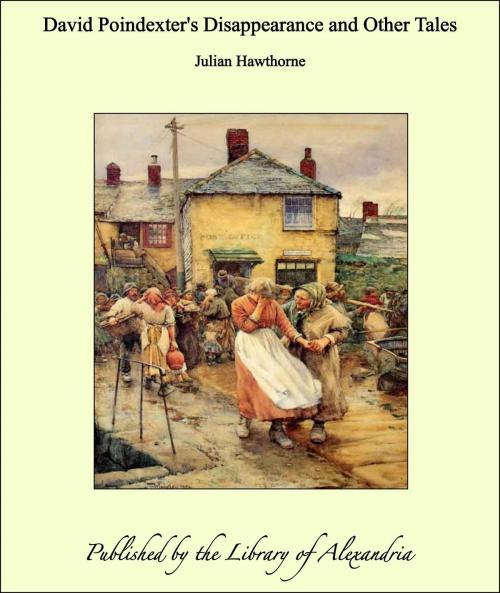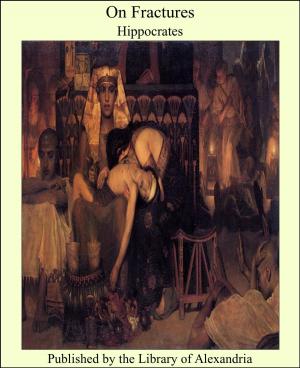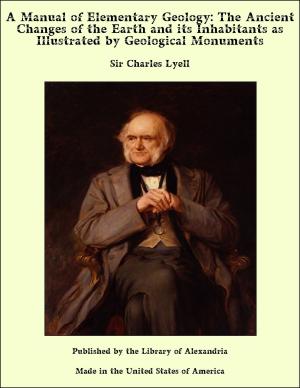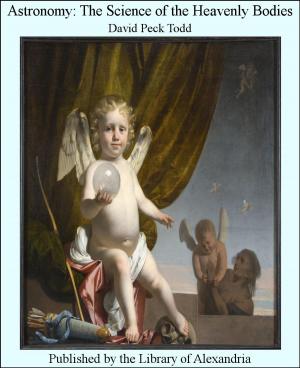David Poindexter's Disappearance and Other Tales
Nonfiction, Religion & Spirituality, New Age, History, Fiction & Literature| Author: | Julian Hawthorne | ISBN: | 9781465558466 |
| Publisher: | Library of Alexandria | Publication: | July 29, 2009 |
| Imprint: | Library of Alexandria | Language: | English |
| Author: | Julian Hawthorne |
| ISBN: | 9781465558466 |
| Publisher: | Library of Alexandria |
| Publication: | July 29, 2009 |
| Imprint: | Library of Alexandria |
| Language: | English |
Among the records of the English state trials are to be found many strange stories, which would, as the phrase is, make the fortune of a modern novelist. But there are also numerous cases, not less stimulating to imagination and curiosity, which never attained more than local notoriety, of which the law was able to take but comparatively small cognizance, although they became subjects of much unofficial discussion and mystification. Among these cases none, perhaps, is better worth recalling than that of David Poindexter. It will be my aim here to tell the tale as simply and briefly as possible—to repeat it, indeed, very much as it came to my ears while living, several years ago, near the scene in which its events took place. There is a temptation to amplify it, and to give it a more recent date and a different setting; but (other considerations aside) the story might lose in force and weight more than it would thereby gain in artistic balance and smoothness. David Poindexter was a younger son of an old and respected family in Sussex, England. He was born in London in 1785. He was educated at Oxford, with a view to his entering the clerical profession, and in the year 1810 he obtained a living in the little town of Witton, near Twickenham, known historically as the home of Sir John Suckling. The Poindexters had been much impoverished by the excesses of David's father and grandfather, and David seems to have had few or no resources beyond the very modest stipend appertaining to his position. He was, at all events, poor, though possessed of capacities which bade fair to open to him some of the higher prizes of his calling; but, on the other hand, there is evidence that he chafed at his poverty, and reason to believe that he had inherited no small share of the ill-regulated temperament which had proved so detrimental to the elder generations of his family. Personally he was a man of striking aspect, having long, dark hair, heavily-marked eyebrows, and blue eyes; his mouth and chin were graceful in contour, but wanting in resolution; his figure was tall, well knit, and slender. He was an eloquent preacher, and capable, when warmed by his subject, of powerfully affecting the emotions of his congregation. He was a great favorite with women—whom, however, he uniformly treated with coldness—and by no means unpopular with men, toward some of whom he manifested much less reserve. Nevertheless, before the close of the second year of his incumbency he was known to be paying his addresses to a young lady of the neighborhood, Miss Edith Saltine, the only child of an ex-army officer. The colonel was a widower, and in poor health, and since he was living mainly on his half-pay, and had very little to give his daughter, the affair was looked upon as a love match, the rather since Edith was a handsome young woman of charming character. The Reverend David Poindexter certainly had every appearance of being deeply in love; and it is often seen that the passions of reserved men, when once aroused, are stronger than those of persons more generally demonstrative. Colonel Saltine did not at first receive his proposed son-in-law with favor. He was a valetudinarian, and accustomed to regard his daughter as his nurse by right, and he resented the idea of her leaving him forlorn for the sake of a good-looking parson. It is very likely that his objections might have had the effect of breaking off the match, for his daughter was devotedly attached to him, and hardly questioned his right to dispose of her as he saw fit; but after a while the worthy gentleman seems to have thought better of his contrariness. Poindexter had strong persuasive powers, and no doubt made himself personally agreeable to the colonel, and, moreover, it was arranged that the latter should occupy the same house with Mr. and Mrs. Poindexter after they were married. Nevertheless, the colonel was not a man to move rapidly, and the engagement had worn along for nearly a year without the wedding-day having been fixed. One winter evening in the early part of December, Poindexter dined with the colonel and Edith, and as the gentlemen were sitting over their wine the lover spoke on the topic that was uppermost in his thoughts, and asked his host whether there was any good reason why the marriage should not be consummated at once
Among the records of the English state trials are to be found many strange stories, which would, as the phrase is, make the fortune of a modern novelist. But there are also numerous cases, not less stimulating to imagination and curiosity, which never attained more than local notoriety, of which the law was able to take but comparatively small cognizance, although they became subjects of much unofficial discussion and mystification. Among these cases none, perhaps, is better worth recalling than that of David Poindexter. It will be my aim here to tell the tale as simply and briefly as possible—to repeat it, indeed, very much as it came to my ears while living, several years ago, near the scene in which its events took place. There is a temptation to amplify it, and to give it a more recent date and a different setting; but (other considerations aside) the story might lose in force and weight more than it would thereby gain in artistic balance and smoothness. David Poindexter was a younger son of an old and respected family in Sussex, England. He was born in London in 1785. He was educated at Oxford, with a view to his entering the clerical profession, and in the year 1810 he obtained a living in the little town of Witton, near Twickenham, known historically as the home of Sir John Suckling. The Poindexters had been much impoverished by the excesses of David's father and grandfather, and David seems to have had few or no resources beyond the very modest stipend appertaining to his position. He was, at all events, poor, though possessed of capacities which bade fair to open to him some of the higher prizes of his calling; but, on the other hand, there is evidence that he chafed at his poverty, and reason to believe that he had inherited no small share of the ill-regulated temperament which had proved so detrimental to the elder generations of his family. Personally he was a man of striking aspect, having long, dark hair, heavily-marked eyebrows, and blue eyes; his mouth and chin were graceful in contour, but wanting in resolution; his figure was tall, well knit, and slender. He was an eloquent preacher, and capable, when warmed by his subject, of powerfully affecting the emotions of his congregation. He was a great favorite with women—whom, however, he uniformly treated with coldness—and by no means unpopular with men, toward some of whom he manifested much less reserve. Nevertheless, before the close of the second year of his incumbency he was known to be paying his addresses to a young lady of the neighborhood, Miss Edith Saltine, the only child of an ex-army officer. The colonel was a widower, and in poor health, and since he was living mainly on his half-pay, and had very little to give his daughter, the affair was looked upon as a love match, the rather since Edith was a handsome young woman of charming character. The Reverend David Poindexter certainly had every appearance of being deeply in love; and it is often seen that the passions of reserved men, when once aroused, are stronger than those of persons more generally demonstrative. Colonel Saltine did not at first receive his proposed son-in-law with favor. He was a valetudinarian, and accustomed to regard his daughter as his nurse by right, and he resented the idea of her leaving him forlorn for the sake of a good-looking parson. It is very likely that his objections might have had the effect of breaking off the match, for his daughter was devotedly attached to him, and hardly questioned his right to dispose of her as he saw fit; but after a while the worthy gentleman seems to have thought better of his contrariness. Poindexter had strong persuasive powers, and no doubt made himself personally agreeable to the colonel, and, moreover, it was arranged that the latter should occupy the same house with Mr. and Mrs. Poindexter after they were married. Nevertheless, the colonel was not a man to move rapidly, and the engagement had worn along for nearly a year without the wedding-day having been fixed. One winter evening in the early part of December, Poindexter dined with the colonel and Edith, and as the gentlemen were sitting over their wine the lover spoke on the topic that was uppermost in his thoughts, and asked his host whether there was any good reason why the marriage should not be consummated at once















